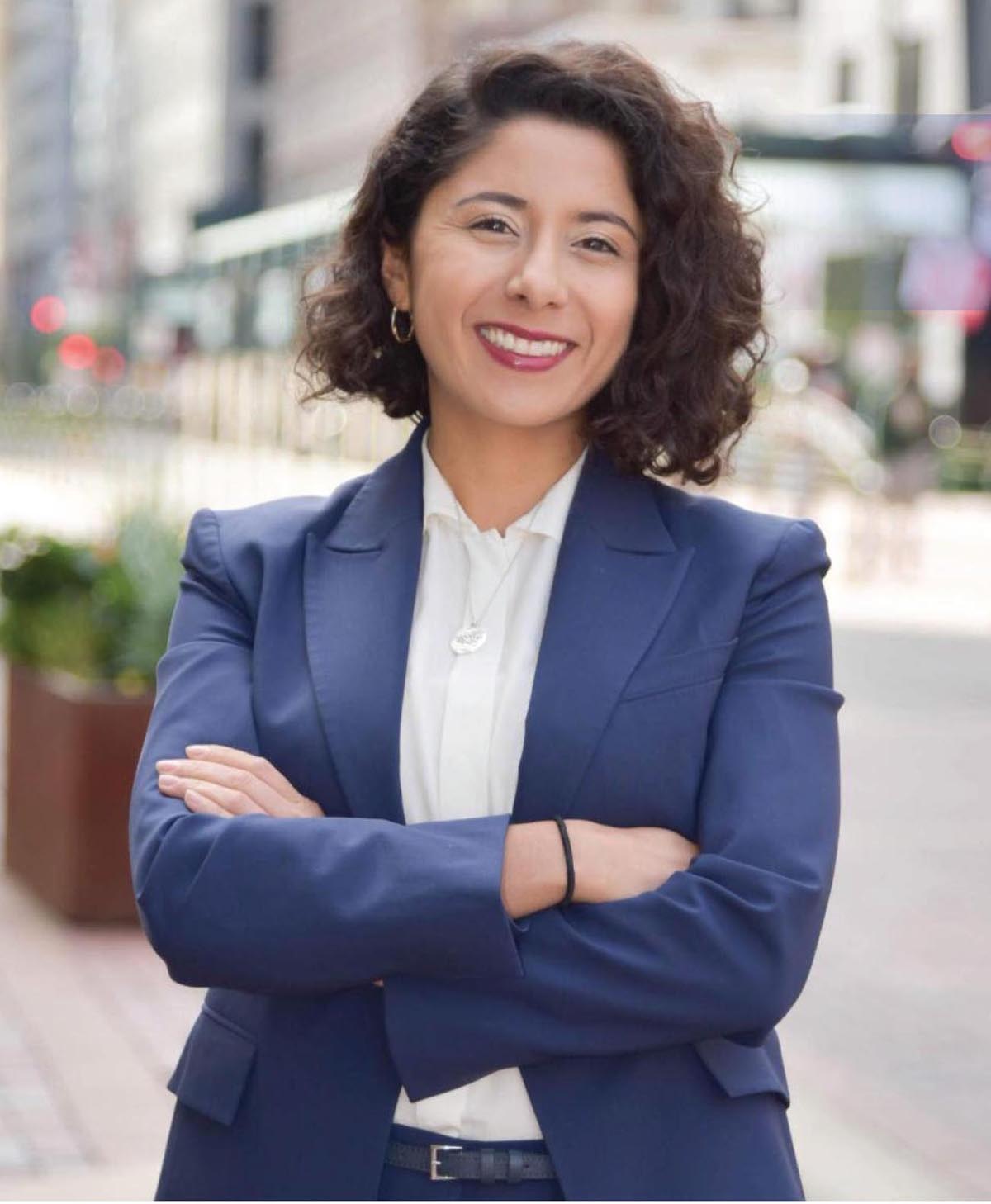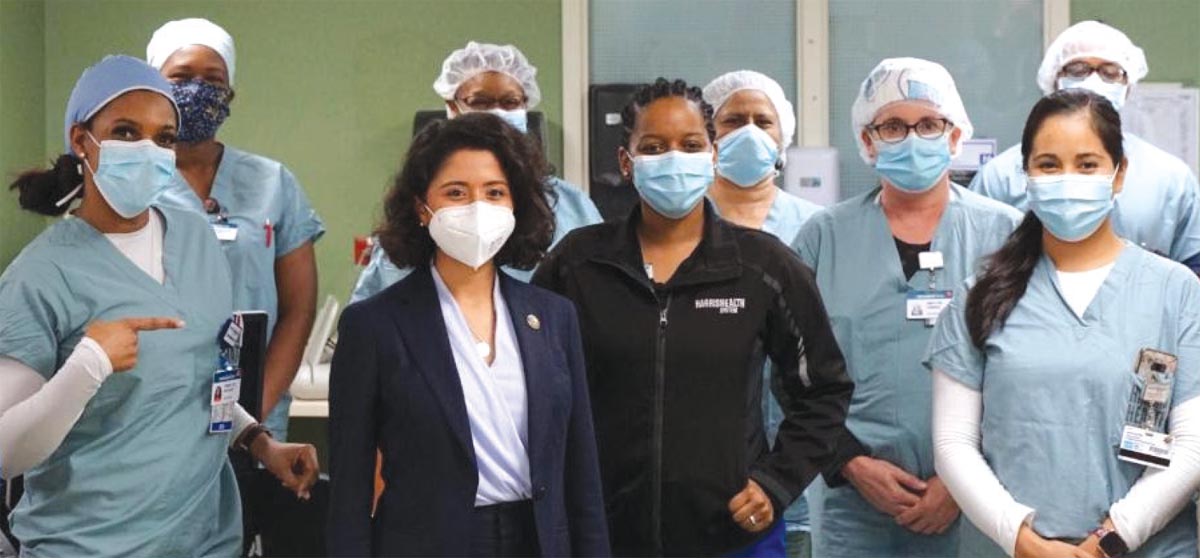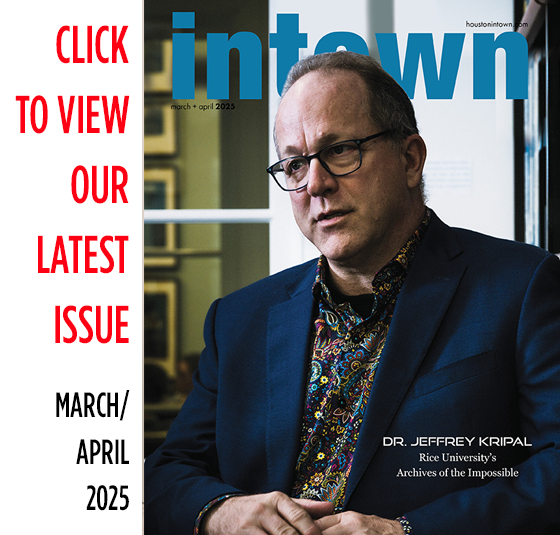Interview with Lina Hidalgo

In the 2018 elections voters determined it was an out with the old and in with the new. Many newly elected officials were surprisingly young and female. Nowhere was this more evident than in Houston, Texas, when 27-year-old Lina Hidalgo defeated longtime Republican Judge Ed Emmett for Harris County Judge. The margin was a paltry 13,000 votes, and many attributed it to the Beto effect. Still, also it was an uncanny strategy devised by Hidalgo and her supporters that targeted a group of “at-risk” voters who they determined may not vote a straight ticket. Her smarts are traced back to high school, where she was encouraged to attend accelerated classes, which enabled her to attend and graduate from Stanford. Rather than attend Harvard and NYU to pursue a joint degree, she decided to put that idea on hold and run for County Judge. Before being elected as the CEO of Harris County’s 3 billion-plus budget Judge Hidalgo held positions as an interpreter at Texas Children’s, the Internews Network in Asia, and the Texas Civil Rights Project as a volunteer on criminal justice reform.
Our interviewers caught up with the Judge during the height of the coronavirus response.
John Granato: We appreciate you joining us, Judge. How are you?
Lina Hidalgo: Doing great. Thank you for having me.
John Granato: Well, I can’t imagine the difficulty in your job, but what has happened with COVID 19, how much did that kick up the amount of what you have to do?
Lina Hidalgo: You know, in some ways as we came into office about a year ago and since then, I think the second day in office, we had heavy rain. We’ve had three floods, three chemical fires. Now we’re a large community. Things are bound to happen. But this is unlike anything anybody has ever seen, you know, and we’re facing it the world over. So, of course, it’s a huge challenge. But there is also something uniting about it that all of us are empowered and have a role to play in this disaster. This is not just about the first responders and emergency management. It’s not only about the doctors, but it’s also about all of us. Due to the people in this community and because we took actions early on, our curve is flattening. We pull together just like we pull for a sports team. And it shows.
Raheel Ramzanali: How hard was it to put in specific orders when it was so early, and I don’t think the public understood what was at stake.
Lina Hidalgo: We knew that this was going to have dire economic consequences from the very first measures due to the stay-home order. But we knew it was the only way forward. I mean, unfortunately, in this country, we haven’t had enough testing. We finally are catching up. But early on, the only tool we had was the blunt tool of shutting everything down. We didn’t have enough testing to isolate the folks who were sick so everybody else could go to work like they’ve done in other countries. They really left us no choice. We’re now developing these better tools as the testing is catching up, and then that will help get the economy back on track faster.
Raheel Ramzanali: Now, while everyone is at home, Judge, there is a lot of free time. There’s a lot of time to do some good in the community by filling out the 2020 census. It’s crucial for funding our community programs over the next ten years.
Lina Hidalgo: Yes. Look, our public health departments are supposed to be receiving allocations from this big, you know, the stimulus package, a federal package that’s gone through hundreds of millions of dollars for local governments. That money is assigned based on census tracts. And so, you know, I know I’m talking to sports fans. We’re all competitive. We’ve got a lot of community pride, and right now, there is a way for us to compete with the census because we’re a huge community. We’re a diverse community. And if we don’t count everybody in this community, we’re not going to get the money we deserve. It may be Houston’s bigger than Chicago. Let’s prove it. We’re actually, Check out that census mailer everybody’s received or go to my 2020 census dot gov. Fill it out. It takes about five minutes, ten at most.

Raheel Ramzanali: I moved from Pakistan, and I only had a Social Security card. So you always worried as a family, like if you fill this out. What’s going to happen? Right. Am I going to get deported?
Lina Hidalgo: That’s right. I mentioned the census couldn’t be more critical because it’s the last chance we’ll have until 2030. Right. For the next ten years to represent our community. But also, it’s safe. Your data is protected by federal law. Folks could go to prison for sharing anything. And, you know, political boundaries are drawn due to census. So that’s something else that we can do. I mean, it’s amazing how much power each of us as individuals has during this time.
John Granato: You’re doing a heck of a job. Judge and all this must be an incredible time having had a lot of tragedies already in your brief time, haven’t you? More than a lot of elected officials will have in a lifetime.
Lina Hidalgo: Yeah, but you know each time we’ve learned from it. I mean, that the disaster we had last year with the fire, we could all see the plume all across the county. We’ve been able to update our environmental policies, make sure that everybody is playing by the rules. Right. But you don’t have some companies getting off easy while everybody else is doing their job. And, you know, with this. I think everyone is just pulling together. We know how to do that. That’s why we’re good. That’s why we’re strong. That’s why we’re also faithful to our teams. You know, it’s just part of our spirit, which is as beautiful. And we have to build on that.
Raheel Ramzanali: Harris County Judge Lina Hidalgo. Anything else you want to add, Judge, before we let you go, I know you’ve got a busy, busy schedule, so thank you for joining us for anything else you want to add before we let you out.
























